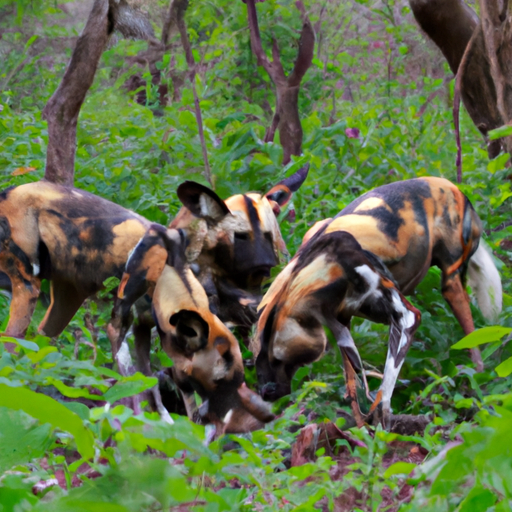Understanding the Ancestral Diet of Dogs
The diet of your beloved pet can seem like a mystery, especially when you consider their wild ancestors. Dogs, being descendants of wolves and other wild canine species, have a diet in the wild that may surprise you. It’s not all about meat, as you might think.
In the wild, dogs are omnivores, meaning they eat a combination of both meat and plant-based foods. Their diet typically includes:
- Meat and Fish: This is their primary source of protein. They eat a variety of meat, including deer, rabbit, and other small to medium-sized mammals.
- Fruits and Vegetables: Wild dogs also consume fruits, berries, and vegetables they find in their environment.
- Grains: Despite popular belief, wild dogs will also eat grains, usually from the stomach contents of their prey.
This balanced diet provides dogs with essential nutrients, vitamins, and minerals that keep them healthy and strong.
The Predatory Instincts of Dogs
The predatory instincts of dogs play a significant part in their dietary habits. In the wild, dogs are natural hunters. They have sharp teeth designed for tearing meat and strong jaws capable of crushing bones.
However, their hunting habits also lead them to scavenge. They will eat leftovers from other predators’ kills or find food remnants in human waste dumps. Thus, their diet is not just limited to fresh kills but also includes scavenged meals.
How Domestication Has Changed Dogs’ Diets
Domestication has significantly altered the eating habits of dogs. As they have adapted to living with humans, their diets have changed to accommodate more readily available food sources, such as:
- Commercial dog food
- Human food scraps
- Bones and treats
While these foods can provide necessary nutrients, they often lack the balanced nutrition that a wild diet provides. As a result, it’s crucial for you, as a caregiver, to ensure your pet’s diet is well-rounded and nutritious.
Mimicking a Wild Diet for Domestic Dogs
While it’s not practical or necessary to completely recreate a wild dog’s diet for your domesticated pet, understanding their ancestral eating habits can guide you towards healthier food choices for them.
| Wild Diet Component | Domestic Diet Equivalent |
|---|---|
| Meat and Fish | High-quality, meat-based dog food |
| Fruits and Vegetables | Fresh fruits and vegetables, always ensuring they are safe for dogs |
| Grains | Whole grains, as long as your dog is not allergic |
Always consult with a vet before making significant changes to your dog’s diet.
Frequently Asked Questions (FAQs)
Q: Do wild dogs eat bones?
A: Yes, wild dogs do eat bones. They provide essential nutrients like calcium.
Q: Can I feed my dog a completely raw diet?
A: Some pet owners do opt for a raw diet, but it’s important to consult with a vet first.
Q: Do dogs in the wild eat every day?
A: Unlike domestic dogs, wild dogs don’t eat every day. They eat when they can find food.
Remember, understanding the dietary habits of dogs in the wild isn’t about replicating it exactly, but rather using it as a guide to providing a balanced and nutritious diet for your domesticated pet.



